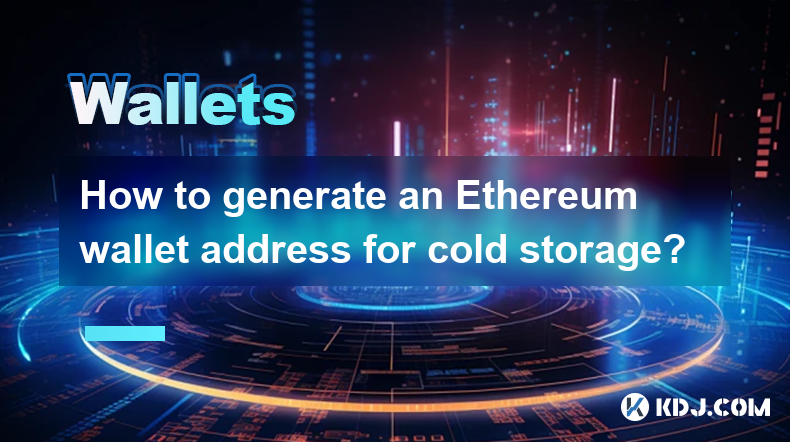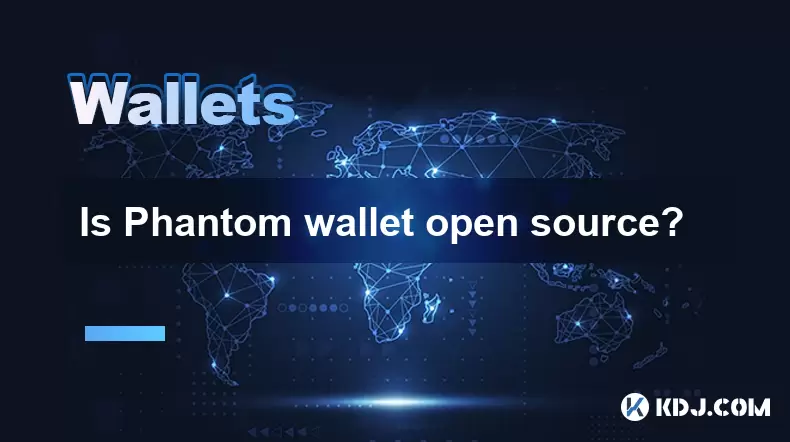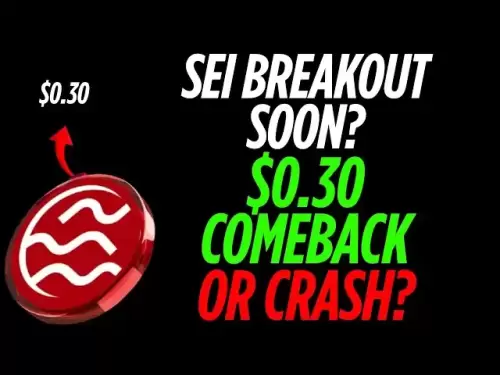-
 Bitcoin
Bitcoin $109,583.2239
0.19% -
 Ethereum
Ethereum $2,583.4612
0.48% -
 Tether USDt
Tether USDt $1.0003
-0.04% -
 XRP
XRP $2.2681
0.70% -
 BNB
BNB $659.9218
-0.52% -
 Solana
Solana $151.4961
-0.37% -
 USDC
USDC $0.9999
-0.02% -
 TRON
TRON $0.2861
1.20% -
 Dogecoin
Dogecoin $0.1718
0.04% -
 Cardano
Cardano $0.5960
-0.07% -
 Hyperliquid
Hyperliquid $40.1233
2.85% -
 Sui
Sui $2.9974
2.48% -
 Bitcoin Cash
Bitcoin Cash $497.1279
-1.76% -
 Chainlink
Chainlink $13.7275
-0.22% -
 UNUS SED LEO
UNUS SED LEO $9.0241
0.70% -
 Avalanche
Avalanche $18.5536
-0.88% -
 Stellar
Stellar $0.2421
1.39% -
 Toncoin
Toncoin $2.8593
-0.51% -
 Shiba Inu
Shiba Inu $0.0...01187
-0.07% -
 Litecoin
Litecoin $90.0023
2.90% -
 Hedera
Hedera $0.1590
2.79% -
 Monero
Monero $322.1495
0.00% -
 Polkadot
Polkadot $3.5453
-1.00% -
 Dai
Dai $1.0000
-0.01% -
 Bitget Token
Bitget Token $4.5733
-1.06% -
 Ethena USDe
Ethena USDe $1.0002
-0.01% -
 Uniswap
Uniswap $7.6345
3.03% -
 Aave
Aave $279.2583
0.47% -
 Pepe
Pepe $0.0...01003
-1.52% -
 Pi
Pi $0.4941
-0.32%
How to generate an Ethereum wallet address for cold storage?
Secure your Ethereum with a hardware wallet like Ledger or Trezor; generate your address, verify it, and meticulously safeguard your seed phrase—your only key to recovery.
Mar 16, 2025 at 11:16 pm

Key Points:
- Understanding the importance of cold storage for Ethereum.
- Choosing a suitable cold storage device (hardware wallet).
- Setting up your chosen hardware wallet and generating your Ethereum address.
- Verifying the generated address and ensuring its security.
- Backing up your seed phrase and understanding its critical importance.
- Best practices for securing your cold storage wallet and Ethereum.
How to Generate an Ethereum Wallet Address for Cold Storage?
Cold storage refers to storing your cryptocurrency offline, significantly reducing the risk of hacking. For Ethereum, this usually involves a hardware wallet. These devices provide a secure environment to generate and manage your private keys, which are essential for accessing your Ethereum. Choosing the right hardware wallet is crucial for the security of your assets. Popular options include Ledger and Trezor.
Selecting a reputable hardware wallet is the first step. Research thoroughly before making a purchase. Consider factors like user reviews, security features, and support. Once you’ve chosen, carefully unpack it and follow the manufacturer’s instructions. Never purchase a used hardware wallet, as this could compromise your security.
Generating your Ethereum address involves a few steps using your chosen hardware wallet. The process varies slightly depending on the specific device, so consult your hardware wallet’s official documentation for precise instructions. Generally, you will need to connect the device to your computer and follow the on-screen prompts. The process often includes creating a PIN code for added security.
After the setup process, your hardware wallet will display your Ethereum address. This is a unique identifier that allows others to send Ethereum to you. This address is publicly viewable and should not be confused with your private keys, which remain securely stored within the hardware wallet. Always verify the address before sharing it with anyone.
One of the most critical steps in setting up a cold storage wallet is backing up your seed phrase (recovery phrase). This is a sequence of words that acts as a master key to your wallet. Write it down on paper, store it securely in a safe place, and never store it digitally. Losing your seed phrase means losing irretrievable access to your Ethereum.
Security is paramount when using cold storage. Always keep your hardware wallet in a safe place, away from any potential threats. Avoid leaving it unattended and never share your seed phrase or PIN with anyone. Regularly update your hardware wallet's firmware to benefit from the latest security patches.
Frequently Asked Questions:
Q: What is a hardware wallet, and why is it better than a software wallet for cold storage?
A: A hardware wallet is a physical device designed to securely store cryptocurrency private keys offline. Unlike software wallets (which are vulnerable to malware and hacking), hardware wallets offer a significantly higher level of security by keeping your private keys isolated from internet-connected devices.
Q: Are all hardware wallets the same?
A: No, hardware wallets vary in terms of security features, supported cryptocurrencies, user interface, and price. Research different brands like Ledger and Trezor to find one that best suits your needs and budget. Consider factors like the reputation of the manufacturer and the level of security they offer.
Q: What should I do if I lose my seed phrase?
A: Losing your seed phrase means you lose access to your Ethereum. There is no recovery mechanism. Therefore, protecting your seed phrase is paramount. Store it securely and make multiple copies, keeping them in separate locations.
Q: How often should I update my hardware wallet's firmware?
A: Manufacturers regularly release firmware updates to address security vulnerabilities. Check for updates regularly and install them promptly to maintain the highest level of security for your Ethereum. This is crucial to protect against newly discovered vulnerabilities.
Q: Can I use my hardware wallet for other cryptocurrencies besides Ethereum?
A: Many hardware wallets support multiple cryptocurrencies, including Ethereum. Check the wallet's specifications to see which cryptocurrencies are compatible. Some wallets support a wide range, while others may be limited to a specific set of assets.
Q: Is it safe to connect my hardware wallet to a public Wi-Fi network?
A: It's generally not recommended to connect your hardware wallet to a public Wi-Fi network. Public Wi-Fi networks are often less secure and could be susceptible to attacks. Stick to trusted and secure network connections when using your hardware wallet.
Q: How do I know if my Ethereum address is correctly generated?
A: Your hardware wallet will display your Ethereum address. You can verify this address by trying to send a small amount of testnet Ethereum to it (testnet Ethereum is a test version of Ethereum and doesn't have real value). If the transaction is successful, it confirms the address is valid. Never rely on just visually inspecting the address.
Q: What if my hardware wallet malfunctions?
A: If your hardware wallet malfunctions, contact the manufacturer's support immediately. They might offer troubleshooting steps or replacement options. Having a backup seed phrase is critical in such situations. Remember that the seed phrase is your only way to recover your funds.
Q: Can I generate multiple Ethereum addresses from a single hardware wallet?
A: Yes, most hardware wallets allow you to generate multiple addresses from a single device. This helps to improve privacy and security by separating funds into different addresses. Each address will still be linked to your master seed phrase.
Disclaimer:info@kdj.com
The information provided is not trading advice. kdj.com does not assume any responsibility for any investments made based on the information provided in this article. Cryptocurrencies are highly volatile and it is highly recommended that you invest with caution after thorough research!
If you believe that the content used on this website infringes your copyright, please contact us immediately (info@kdj.com) and we will delete it promptly.
- Coinbase, Wormhole, and the Crypto Exchange Evolution: What's the Deal?
- 2025-07-04 06:50:12
- Dogwifhat (WIF) Price Surge: Meme Coin Mania or Something More?
- 2025-07-04 06:30:13
- Celestia (TIA) Price: Breakout or Breakdown? Decoding the TIA Breakout Pattern
- 2025-07-04 06:50:12
- Nano Labs, BNB, and a $1B War Chest: A Bold Crypto Play
- 2025-07-04 06:30:13
- BlackRock's IBIT ETF: Climbing the Revenue Ranks and Shaking Up Wall Street
- 2025-07-04 06:35:13
- Ethereum, the US Economy, and Tariffs: Decoding the Interwoven Threads
- 2025-07-04 06:55:13
Related knowledge

How to cancel a pending transaction in Phantom wallet?
Jul 03,2025 at 07:21pm
Understanding Pending Transactions in Phantom WalletA pending transaction in the Phantom wallet occurs when a user initiates a transfer or interaction with the Solana blockchain, but it hasn't yet been confirmed by the network. This can happen due to various reasons such as low transaction fees, network congestion, or incorrect gas settings. It's import...

How to see the estimated value of my tokens in Phantom wallet?
Jul 04,2025 at 12:21am
What is Phantom Wallet?Phantom wallet is one of the most popular cryptocurrency wallets designed for the Solana blockchain. It allows users to store, send, receive, and manage various tokens built on Solana, including SPL tokens and NFTs. The wallet offers a user-friendly interface, making it accessible for both beginners and advanced users in the crypt...

How to lock my Phantom wallet extension?
Jul 03,2025 at 11:14am
What Is the Phantom Wallet and Why Lock It?The Phantom wallet is a popular non-custodial cryptocurrency wallet designed for interacting with the Solana blockchain. Supporting both browser extensions and mobile apps, Phantom allows users to store, send, receive, and stake SOL tokens, as well as interact with decentralized applications (dApps). Securing y...

Does Phantom wallet offer two-factor authentication (2FA)?
Jul 03,2025 at 09:00am
Understanding Phantom Wallet and Its Security FeaturesPhantom wallet is a widely used non-custodial cryptocurrency wallet that supports the Solana blockchain. It allows users to store, send, receive, and interact with decentralized applications (dApps) seamlessly. As security is a top priority for any crypto wallet user, security features like two-facto...

What is "rent" on Solana and how does it affect my Phantom wallet?
Jul 02,2025 at 08:35pm
Understanding 'Rent' on SolanaIn the context of Solana, the term 'rent' refers to a storage fee that users pay for maintaining data on the blockchain. Unlike Ethereum, where storage costs are paid once via gas fees during contract deployment, Solana implements a recurring cost model to ensure efficient usage of network resources. This means that any acc...

Is Phantom wallet open source?
Jul 03,2025 at 12:29am
What is Phantom Wallet?Phantom wallet is a non-custodial cryptocurrency wallet primarily designed for the Solana blockchain. It allows users to store, send, receive, and interact with decentralized applications (dApps) on the Solana network. The wallet is available as a browser extension and mobile application, offering a seamless experience for both be...

How to cancel a pending transaction in Phantom wallet?
Jul 03,2025 at 07:21pm
Understanding Pending Transactions in Phantom WalletA pending transaction in the Phantom wallet occurs when a user initiates a transfer or interaction with the Solana blockchain, but it hasn't yet been confirmed by the network. This can happen due to various reasons such as low transaction fees, network congestion, or incorrect gas settings. It's import...

How to see the estimated value of my tokens in Phantom wallet?
Jul 04,2025 at 12:21am
What is Phantom Wallet?Phantom wallet is one of the most popular cryptocurrency wallets designed for the Solana blockchain. It allows users to store, send, receive, and manage various tokens built on Solana, including SPL tokens and NFTs. The wallet offers a user-friendly interface, making it accessible for both beginners and advanced users in the crypt...

How to lock my Phantom wallet extension?
Jul 03,2025 at 11:14am
What Is the Phantom Wallet and Why Lock It?The Phantom wallet is a popular non-custodial cryptocurrency wallet designed for interacting with the Solana blockchain. Supporting both browser extensions and mobile apps, Phantom allows users to store, send, receive, and stake SOL tokens, as well as interact with decentralized applications (dApps). Securing y...

Does Phantom wallet offer two-factor authentication (2FA)?
Jul 03,2025 at 09:00am
Understanding Phantom Wallet and Its Security FeaturesPhantom wallet is a widely used non-custodial cryptocurrency wallet that supports the Solana blockchain. It allows users to store, send, receive, and interact with decentralized applications (dApps) seamlessly. As security is a top priority for any crypto wallet user, security features like two-facto...

What is "rent" on Solana and how does it affect my Phantom wallet?
Jul 02,2025 at 08:35pm
Understanding 'Rent' on SolanaIn the context of Solana, the term 'rent' refers to a storage fee that users pay for maintaining data on the blockchain. Unlike Ethereum, where storage costs are paid once via gas fees during contract deployment, Solana implements a recurring cost model to ensure efficient usage of network resources. This means that any acc...

Is Phantom wallet open source?
Jul 03,2025 at 12:29am
What is Phantom Wallet?Phantom wallet is a non-custodial cryptocurrency wallet primarily designed for the Solana blockchain. It allows users to store, send, receive, and interact with decentralized applications (dApps) on the Solana network. The wallet is available as a browser extension and mobile application, offering a seamless experience for both be...
See all articles

























































































